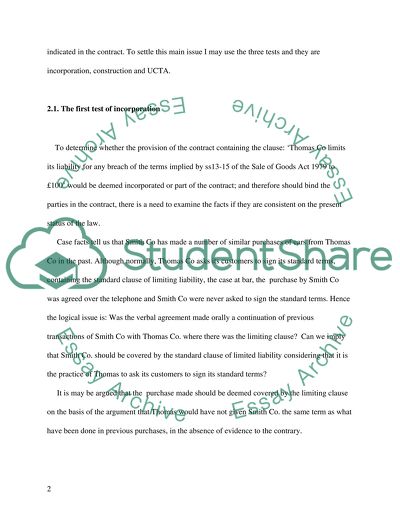Cite this document
(“EXEMPTION CLAUSES ( contract ) Essay Example | Topics and Well Written Essays - 1500 words”, n.d.)
EXEMPTION CLAUSES ( contract ) Essay Example | Topics and Well Written Essays - 1500 words. Retrieved from https://studentshare.org/miscellaneous/1536588-exemption-clauses-contract
EXEMPTION CLAUSES ( contract ) Essay Example | Topics and Well Written Essays - 1500 words. Retrieved from https://studentshare.org/miscellaneous/1536588-exemption-clauses-contract
(EXEMPTION CLAUSES ( Contract ) Essay Example | Topics and Well Written Essays - 1500 Words)
EXEMPTION CLAUSES ( Contract ) Essay Example | Topics and Well Written Essays - 1500 Words. https://studentshare.org/miscellaneous/1536588-exemption-clauses-contract.
EXEMPTION CLAUSES ( Contract ) Essay Example | Topics and Well Written Essays - 1500 Words. https://studentshare.org/miscellaneous/1536588-exemption-clauses-contract.
“EXEMPTION CLAUSES ( Contract ) Essay Example | Topics and Well Written Essays - 1500 Words”, n.d. https://studentshare.org/miscellaneous/1536588-exemption-clauses-contract.


